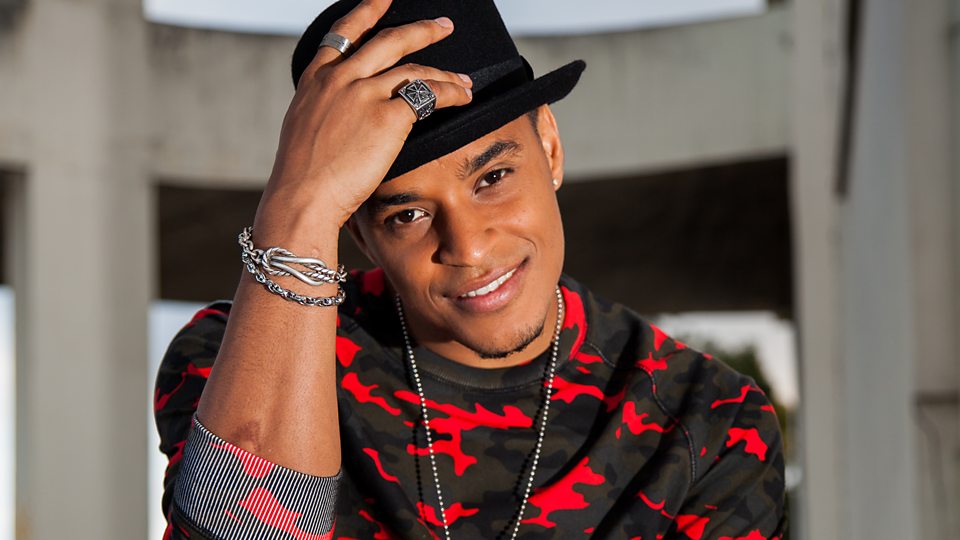Djodje is one of Cape Verde’s most successful pop stars. Following in the footsteps of Nelson Freitas, he blends zouk and kizomba with Cape Verde’s own coladeira rhythms.
His sound is winning fans all over the lusophone world and he’s keen to get exposed to anglophone audiences too, and share in the global success that Afrobeats musicians are now enjoying.
“I come from a family of musicians. My father used to play in a great Cape Verdean group and my mother also comes from a family of writers and composers. So since I was young in my family, we had those dinners or family gatherings always with music.
So I started a music group called DCTC with my cousin, brother and I have a poster of us on my bedroom wall to remind me of where I come from and the beginning of my music career. It helps me stay on my path.”
Djodje was 12 when he started singing and making music.
“When I was 12 I listened to everything; all kinds of music and in Cape Verde. I would listen to Cape Verdean, African, Brazillian, Portuguese music, R&B and Hip Hop.”
In the summer of 2001, a music producer noticed the talent of the group through an annual talent show held in Cape Verde and gave them an opportunity to create their first song, titled ‘Soldat’ which became a hit in the country.
From there Djodje’s life changed.
Now one of the most popular artists in Cape Verde, Djodje who has been in the music industry for 20 years is still considered fresh and new because of the message he aims to put across in his music today.
“I’ve been here for almost 20 years and being able to still be young and fresh it’s incredible.”
With new music coming out towards the end of the year, Djodje says the world will be hearing a lot of judging in his upcoming music.
“I have a lot of new things to release and I am happy for that. You will hear a lot of judging.”
His new single titled ‘Preto’ means black in Portuguese and is a song that initiates conversations surrounding racism.
The equivalent to derogatory word, ‘nigga’, preto also evokes offence when mentioned. But Djodje wants to normalise the use of the word and make it positive with the song’s namesake.
“We felt it was very necessary to do because as artists we have to say something and use our voice. The best way to use our voice I think is through music. We did this song and the video is very strong because of the images we used.”
The song which was released in September 2020, has received both strong criticism and support from his audience.
“The goal has been achieved. We want people to talk about that subject, to talk about racism and I think that the only way for us to go somewhere else is to talk about it.”














